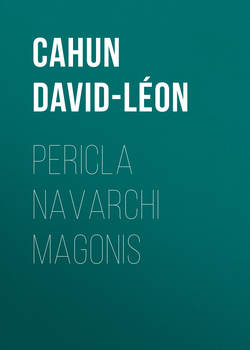Читать книгу Pericla Navarchi Magonis - Cahun David-Léon - Страница 1
INTRODUCTION
ОглавлениеThe easiest way to learn a language is by its use and in this respect Latin is like other languages, – it should be studied with use, and used with study. In teaching Latin, however, schools follow no such simple methods. Latin is taught with hardly any effort at its use and in most cases with no effort to add to the classical text any reading in Latin which would attract the interest of the young and which they could take up out of class for its own sake. The student begins by committing to memory the many forms and rules of an inflected language – no small task to undertake at the age of twelve or thirteen years, – and through this laborious drudgery is introduced to a small amount of text selected from Cæsar, Nepos, Sallust, Cicero and Virgil – excellent texts for the class-room, but not likely to be read at home for pleasure, except by those children, if such there be, who find entertainment out of school in reading Webster, Burke and Milton.
For children who like fairy stories and romance, who like to read of sea-fights and adventure, this account of "The Adventures of Captain Mago" has been translated into excellent Latin by Dr. Arcadius Avellanus, and my advice to those who take the book up, is – don't turn the reading into work. The Latin is not very difficult. Some of the descriptions may not be easy, but descriptions can be passed over and the action is not hard to follow. After reading a few pages in this manner you will be surprised to find that the book can be read for the sake of the story; go a little further and forms and rules which were hard to learn from the grammar will have concrete meaning and a familiar air. Long before the end you will like Latin and will begin to find class-room work much easier.
This book is one of several stories which Dr. Avellanus has translated into Latin and which in their manuscript form have together been called the Mount Hope Classics. One of the short stories in this series, Mr. Ruskin's "King of the Golden River" was recently published in pamphlet form under the title "Rex Aurei Rivi" and met with such demand that the small edition was soon exhausted. The present volume which is the first book to be published from the Mount Hope Classics is printed primarily for my own children, but a somewhat larger edition has been published than was ventured when Rex Aurei Rivi was printed, and while this edition holds out copies may be purchased at the address given below.
37 Wall Street, New York City
E. Parmalee Prentice
